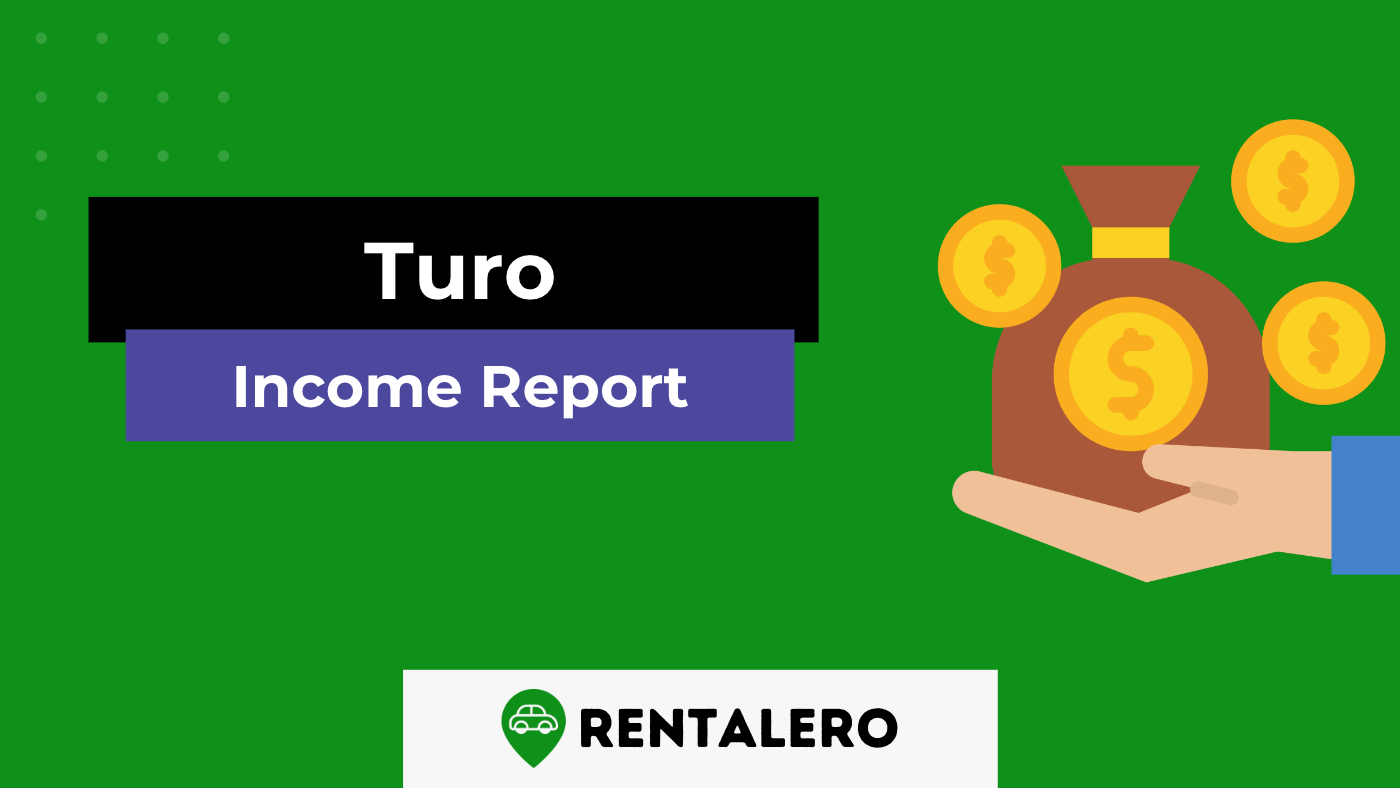Earning extra cash by renting out your car on Turo can be exciting and profitable.
However, as with any income source, it’s essential to understand how to report your Turo earnings for tax purposes. Not doing so may lead to financial headaches and potential penalties.
This article will cover the basics of reporting Turo income, including the forms you’ll need, tax deductions you can claim, and some tips to make the whole process smoother.
Advertising links are marked with *. We receive a small commission on sales, nothing changes for you.
Key Takeaways
- Understand your tax obligations as a Turo host, including reporting income earned from rentals and additional services.
- Keep organized records of your Turo earnings and expenses for accurate tax reporting and to claim deductions.
- Report your Turo income and expenses on the appropriate tax forms, such as Schedule C (Form 1040) and 1099-K.
- Maximize tax savings by identifying and claiming deductions related to your Turo business, such as depreciation, maintenance, and insurance costs.
- Consult a tax professional experienced with Turo or similar platforms for personalized advice and assistance in reporting your Turo income.
Understanding Turo’s Income and Tax Obligations
Before investing in Turo’s services, it is wise to understand their income and tax obligations. This is to avoid future problems and ensure that you are in line with their policies.
Types of Income Earned on Turo
Here’s a quick overview of the different types of income you might earn on Turo:
Rental fees
The primary source of income is the rental fee that guests pay for using your car.
Additional services
You may also offer extra services like delivery, cleaning, or mileage upgrades, which count as income.
Reimbursements
Sometimes, you receive reimbursements for expenses like tolls, tickets, or fuel. Although these are not technically income, keeping track of them for tax is essential.
Tax Implications for Turo Hosts
As a Turo host, you’re considered a small business owner or an independent contractor.
Therefore, you’re responsible for reporting and paying taxes on your income. Here’s what you need to know:
Tax forms
In the US, Turo hosts should receive a Form 1099-K if they meet the IRS thresholds. This form shows your annual earnings, including rental fees and additional services. If you don’t meet the threshold, you must still report your income, so keep accurate records.
Self-employment taxes
As an independent contractor, you’re subject to self-employment taxes, which include Social Security and Medicare taxes. These taxes are usually around 15.3% of your net earnings. You can calculate your self-employment tax using Schedule SE (Form 1040).
Estimated tax payments
You may need to make quarterly estimated tax payments if you expect to owe $1,000 or more when you file your tax return. Use Form 1040-ES to calculate and pay your estimated taxes.
Deductions
The good news is that you can deduct expenses related to your Turo business to reduce your taxable income. Some common deductions include vehicle depreciation, maintenance, insurance, and registration fees. Just remember to keep detailed records and receipts for all your expenses.
State and local taxes
Don’t forget about state and local taxes! Depending on where you live, you may have additional tax obligations beyond federal taxes. Check with your state and local tax agencies for specific requirements.
Record Keeping for Turo Income
Proper record-keeping is essential for Turo hosts. Not only does it make reporting income and filing taxes easier, but it also helps you stay organized and manage your car-sharing business more effectively
Organizing and Tracking Turo Earnings
The following these tips will help you keep track of your Turo earnings:
Use a separate bank account
Open a dedicated bank account for your Turo business to avoid mixing personal and business transactions. This will make it much easier to track your earnings and expenses.
Maintain a digital record
Keep a digital log of all your Turo transactions, including rental fees, additional services, and reimbursements. Tools like spreadsheets or accounting software can be invaluable for staying organized.
Regularly update your records
Make it a habit to update your records frequently. This will save you from scrambling to catch up during tax season and help you spot any discrepancies or issues early on.
Review Turo reports
Turo provides hosts with monthly and annual earning summaries. Use these reports to cross-check your records and ensure accuracy.
Keeping Track of Expenses and Deductions
Tracking your expenses and deductions is just as important as organizing your earnings. Proper record-keeping can help you maximize your tax deductions and minimize your tax liability.
Here’s how to keep track of your Turo-related expenses:
Categorize expenses
Create categories for expenses such as vehicle maintenance, insurance, and registration fees. This will make it easier to identify and claim deductions.
Save receipts and invoices
Keep all receipts, invoices, and other documentation related to your Turo expenses. This will serve as proof of your deductions if the IRS ever audits you.
Use a mileage log
Keep a detailed log of the miles you drive for Turo-related activities, like delivering your car to guests or driving to a maintenance appointment. This will help you calculate and claim mileage deductions.
Monitor depreciation
Depreciation is a significant deduction for Turo hosts. Keep track of your vehicle’s depreciation by calculating the business use percentage and applying the IRS depreciation rates.
Regularly review expenses
Review your expenses periodically to ensure accuracy and completeness. This will help you catch any missing deductions and keep your records up-to-date.
Reporting Turo Income on Tax Forms
Identifying the Appropriate Tax Forms
When it’s time to report your Turo income, knowing which tax forms to use is crucial. Here are the key forms you’ll need:
Schedule C (Form 1040)
Sole proprietors and single-member LLCs use this form to report their business income and expenses. As a Turo host, you’ll typically report your car-sharing income on Schedule C.
Form 1099-K
Turo will send you a Form 1099-K if you meet the IRS reporting threshold of 200 transactions and $20,000 in gross earnings. This form reports your total income from Turo and should be referenced when completing Schedule C.
Form 4562
If you plan to claim deductions for vehicle depreciation, you’ll need to complete Form 4562, which is used to report depreciation and amortization.
Reporting Turo’s Income and Expenses Accurately
Accurate reporting of your Turo income and expenses is essential for complying with tax laws and avoiding potential penalties. Follow these tips to ensure accuracy:
Report gross income
When filling out Schedule C, report your gross Turo income, including rental fees, reimbursements, and other earnings. Then, use the information on your Form 1099-K and personal records to determine your total income.
Itemize expenses
On Schedule C, you must itemize your business expenses by category, such as car maintenance, insurance, and advertising. Again, consult your organized records to accurately report your deductions.
Include depreciation
If you’re claiming vehicle depreciation, complete Form 4562 and attach it to your Schedule C. Be sure to provide accurate information about your vehicle’s cost, business use percentage, and applicable depreciation rates.
Double-check your work
Before submitting your tax forms, take the time to review your entries for accuracy and completeness. This can help you avoid errors that could trigger an audit or result in penalties.
Consult a tax professional
Consider consulting a tax professional if you’re unsure about reporting your Turo income. They can help you navigate the tax implications of your car-sharing business and ensure you’re filing correctly.
Conclusion
In conclusion, reporting your Turo income involves understanding your tax obligations, keeping accurate records of earnings and expenses, completing the appropriate tax forms, maximizing deductions, and seeking professional tax advice when needed.
Being a responsible Turo host means prioritizing your tax and financial responsibilities. By following the steps outlined in this guide, you’ll be well-prepared to report your Turo income accurately and take advantage of tax-saving opportunities. Good luck, and happy hosting!
Frequency Asked Questions
Do I need to report my Turo income on my taxes?
Yes, as a Turo host, you must report your income from Turo on your taxes, including rental fees and additional services.
What tax forms do I need to file for Turo income?
Typically, you’ll need to file Schedule C (Form 1040) and report your Turo income on a 1099-K if you meet the reporting threshold.
Can I deduct expenses related to my Turo business?
Yes, you can deduct expenses like depreciation, maintenance, and insurance if they directly relate to your Turo business.
Should I consult a tax professional for help with reporting Turo’s income?
It’s recommended to seek professional tax advice, especially if you’re unfamiliar with tax requirements for Turo hosts or similar platforms.
How can I keep track of my Turo earnings and expenses?
Maintain organized records of your Turo transactions, and keep receipts and invoices for all expenses related to your Turo business.

Nzoputa has been writing for Rentalero since day one and is one of our most experienced members when it comes to the rental industry. For her, nothing beats Uber!
Advertising links are marked with *. We receive a small commission on sales, nothing changes for you.


